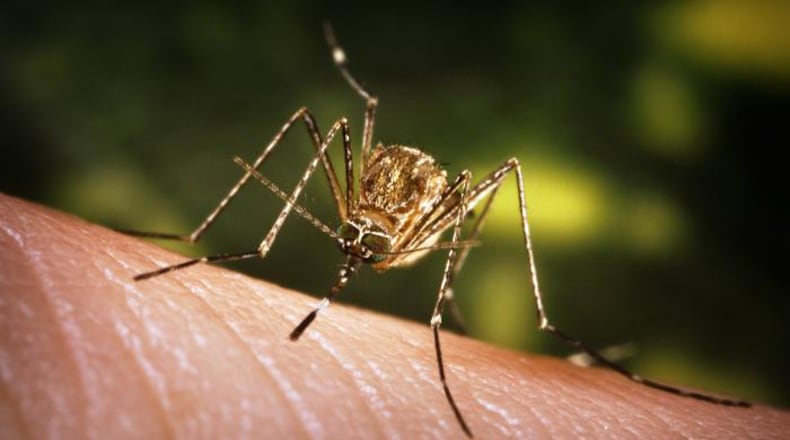The first sample of this year that tested positive for the infection was collected in the south end of Enon in Mad River Township in early July.
“We already have more positive samples right now then we did this time last year,” said Emma Smales, Public Information Officer for the CCCHD. “The biggest thing is we have an increased amount of mosquitoes, so of course, it makes sense we would have more cases.”
LOCAL: Family, friends remember Springfield victims of Oregon District shooting
Smales said the increased number of mosquitoes is due to heavy rainfall Clark County experienced in May and June.
“We didn’t start seeing positive samples last year until August,” Smales said.
West Nile is most commonly spread by infected mosquitoes and can lead to severe fever, encephalitis (inflammation of the brain) or meningitis (inflammation of lining of the brain and spinal cord).
According to a statement from the health district, approximately 80% of the people who are infected with the virus will not show any symptoms, but there is no way to know in advance if someone infected will develop an illness.
Symptoms typically show up between three and 14 days after being bit by an infected mosquito. Symptoms can range from severe to mild and include; high fever, headache, neck stiffness, stupor, disorientation, coma, tremors.
LOCAL: Springfield News-Sun, Dayton Foundation partner to help victims' families
The best way to avoid West Nile is to prevent mosquito bites using what the CCCHD calls the, ‘AVOID, PLAN, STOP,’ plan.
Recommendations under the plan include; applying repellents to exposed skin, wearing long sleeves and pants, doing outside activities at times when mosquito activity is less, getting rid of mosquito breeding sites by emptying or treating any standing water on property and making sure screens on windows and doors are free of holes or rips.
The CCCHD has sent an alert to the local medical community to help facilitate quicker human diagnosis of West Nile Virus. Although, there is no one specific treatment for the infection. Treatment for West Nile is based upon symptoms.
According to the Center for Disease Control, West Nile virus infections in humans have not been reported in the state of Ohio in 2019, as of July 23.
About the Author
